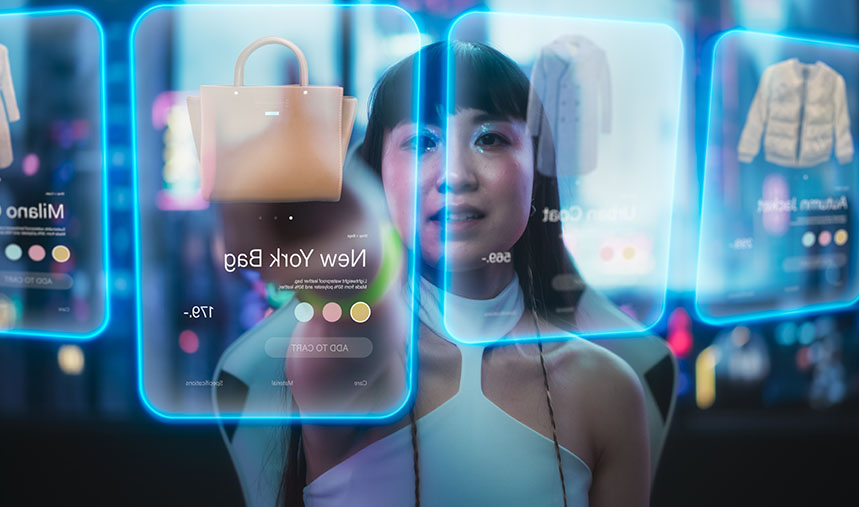As consumers, we are spoiled for choice in today’s market. Take a simple purchase like a pair of sneakers—do you opt for the brand that prioritizes sustainability, using recycled materials and ethical production, or do you choose a more affordable option with less transparency about its environmental impact?
Globally, shoppers have expressed a growing willingness to spend up to 10% more on sustainably sourced and produced products and services – even in the face of rapidly rising cost-of-living pressures.
This signals a fundamental shift in consumer expectations—sustainability is no longer just a preference; it’s becoming a key factor in purchasing decisions. For an increasing number of us, it’s important to know that what we’re buying isn’t harming the planet.
For retailers, this means that sustainability cannot be treated as a mere compliance exercise or a marketing tagline. Consumers are increasingly looking for brands that walk the talk—those that embed sustainability into their core operations and supply chains rather than just making surface-level commitments.
This is a key area where AI can help. I’ve seen firsthand how the technology’s expanding capabilities offer innovative solutions that help retailers reach their sustainability goals while streamlining business processes and driving cost savings.
I’m excited by the growing number of retailers leveraging AI in innovative ways—driving measurable outcomes that benefit both their bottom line and the planet.
Prioritizing AI-Powered Sustainability in Retail
AI has the potential to generate substantial value for the retail industry, estimated at between $400 billion and $660 billion per year. Some of the key areas where retailers can, and already are, leveraging AI include:
- Demand Forecasting and Inventory Management. AI enhances accuracy and ensures optimal stock levels. With predictive analytics and automated demand forecasting of consumer demand, retailers can better plan, track, and manage their inventory, mitigating overstocking and understocking issues. This helps reduce waste and energy usage and allows retailers to transition from reactive to proactive inventory management, improving overall supply chain efficiency.
Example: Walmart has implemented AI-powered systems in its supply chain to predict product demand more accurately, leading to optimized inventory levels and reduced waste. - Delivery and Transport Logistics and Emissions Management. AI-powered systems are helping retailers optimize logistics and transportation routes, significantly reducing carbon footprints by minimizing fuel consumption and emissions.
- Energy Consumption and Management. In-store and across the supply chain, AI can monitor energy consumption in real-time and optimize usage proactively. Data-driven predictive models can forecast consumption patterns, allowing for dynamic adjustments that lead to lower energy and operating costs, thereby improving sustainability.
Example: Coles has inaugurated a new state-of-the-art customer fulfilment center in Sydney, aiming to revolutionize online shopping using advanced AI and robotics. The facility employs innovative technology for improved order accuracy and efficiency.
Lessons in Sustainability from Leading Retailers
Retailers across the globe are already seeing tangible benefits from integrating AI into their sustainability initiatives.
One notable example is the IoT solution that Sutherland has deployed at major Australian grocery chain, Woolworths, to maintain refrigeration temperatures at specific levels to optimize power consumption. Automated signals inform employees if temperatures rise beyond the required levels, and allow staff to adjust them as needed. The next iteration of this solution will be integrating it with downstream Robotic Process Automation (RPA) and agentic AI solutions that will be able to make decisions based on historic consumption patterns, helping drive more sustainable retail operations.
Other retailers can draw valuable insights from such initiatives. To effectively integrate AI for sustainability, my advice is:
- Create a clear, aligned AI and sustainability strategy. Currently, 87% of retailers have deployed AI or automation technology as part of their operations, and 65% have incorporated eco-friendly materials into their products – showing a healthy appetite for both technology adoption and sustainability. However, AI and sustainability initiatives must work in tandem, not in isolation. Retailers need an actionable strategy that links the two, with clear objectives, implementation steps, and measurable performance indicators.
- Harness data-driven insights to optimize at speed. Having a clear plan in place is just the start. The ability to monitor progress and adapt in real-time based on what is and isn’t working is essential – and data holds the key. AI-generated insights empower retailers to make informed, data-led decisions—whether in demand forecasting, supply chain management, or emissions reduction—ensuring that sustainability efforts remain dynamic and effective.
- Invest in an organizational culture shift from the top-down. Successful AI-driven transformation depends on people. Employees at all levels must understand why these changes matter, what their role is in the process, and how to use AI effectively. A strong change management framework, coupled with targeted training programs, fosters a culture of innovation and positions AI adoption for long-term success.
We know that consumers increasingly seek brands that reflect their environmental values. AI offers retailers the tools to integrate sustainability into every aspect of their operations —ensuring that greener practices are not only implemented, but also measurable and impactful to drive a more sustainable future for the industry.
Reimagine Retail Sustainability With AI

Banwari Agarwal is the CEO of Banking, Insurance, Retail, Manufacturing, Travel, and Logistics at Sutherland. Banwari brings deep expertise in digital technologies and operations and over 25 years of leadership experience across the US, Europe, and APAC. His strategic vision has driven transformative outcomes in digital business services across multiple industries, delivering innovative, cutting-edge solutions in finance, HR, procurement, and supply chain management.






